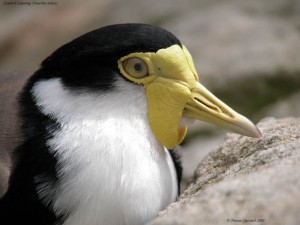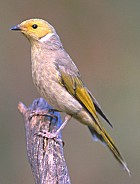Ashcroft, Inauguration and Let the Eagle Soar
This is a new low in patriotic and God-invoking propaganda. Have we acheived National Socialism yet?
B-A-R-F!





 "
"
 "
"
 "
"
 "
"

How on earth does Larry King purport to be a newsman?
There are wars and genocides going on in the world. There are diseases to cure. We're landing exploring machines on other worlds. There is so much going on that is news. People's sick fascination with such trash is one thing, but dressing it up as news is absolutely immoral.
Can somebody please wake America up? We're turning into a culture of trash.
New rule: Being au courant doesn't count if your news source is anything on TV. Except The Daily Show with Jon Stewart cuz that shit's just funny.
*Larry King is Satan according to my personal belief system, and is probably not the real Lucifer, Judeo-Christian embodiment of pure evil.

While searching for a name for an open source project that I working on with Nat Friedman, I got into some casual web reading on great apes--our closest relatives; the family of creatures to which we humans belong.
Homo floresensis, the recently discovered contemporary to our own species, Homo sapiens, fills me with wonder. As recently as 13,000 years ago, we had a tiny contemporary that--by our own taxonomic methods--shared our same genus and may have lived side by side with modern humans. Evidence excavated from Liang Bua on the island of Flores, Indonesia, lays out the case with at least one relatively complete skeleton and the remains of five others. The most recent Scientific American featured a summary of the find, as well as made it the cover subject.

Now, as it turns out, there is an outside chance that the species either existed up to even more recent times, or could even still exist. The people of the island of Flores have oral traditions of a small, human-like creature that they call "Ebu Gogo" that lives on the island. The Floresians' stories go so far as to recount recent interactions with the creatures. Certainly, I'm a strong believer that scientifically-minded skepticism is the best route when it comes to cryptozoological claims--especially those that involve of any mysterious human-like creatures. The likely case is that the people of Flores simply have Ebu Gogo as their own local skunk ape legend.
Of similar interest is a potentially new species of ape that was recently discovered in Africa. In the Democratic Republic of Congo (yes, the Congo still can play the clichéd role as deepest, darkest Africa), a giant chimpanzee has recently been discovered. They are enough unlike chimpanzees and gorillas to be considered possibly a new species of great ape.
In either case—whether a new species of great ape, or another human species somehow still living in our shadow—what would we do? Would there not be an incredible biological imperative to preserve them from destruction at our own hands? In the case of the potentially new ape turning out to be real, we might have some serious issues. The Congo is a war-torn country—natural preservation seldom fares well in the face of human strife. Also, our record for preserving species—even those most closely related to us—is not very good. The great apes seem to have no special preservation standing with us.
A new, living species of Homo suddenly turning up could create deep, deep challenges for us as a species, because Homo means intelligent. What would we do? How would religious fundamentalists (Christian, Muslim, or others of the monotheist creation myth) deal with the news? How would scientists manage to both study and preserve the dignity of such a species?
It is unlikely that the Ebu Gogo legend will produce a living H. floresensis for us to ever find out the answers to these and many other questions. One thing is now fairly certain, though: we Homo sapiens have lived alongside at least two Homo contemporaries (H. erectus, H. neanderthalensis) and perhaps now one more (H. floresensis). Homo sapiens emerged dominant from the various types of Homo on which evolution was tinkering. Now we are the only species we know of that is stretching out to explore the laws of the universe that begat us. We can look now at the still-emerging evidence of our own evolutionary history, and also that of our generic contemporaries, and part of the wonder is necessarily sober and somber: At what cost have we succeeded as a species?
In some respects, science has far surpassed religion in delivering awe. How is it that hardly any major religion has looked at science and concluded, “This is better than we thought! The universe is much bigger than our prophets said, grander, more subtle, more elegant. God must be even greater than we dreamed.” Instead they say, “No, no, no! My god is a little god, and I want him to stay that way.” A religion, old or new, that stressed the magnificence of the universe as revealed by modern science might be able to draw forth reserves of reverence and awe hardly tapped by the conventional faiths. Sooner or later such a religion will emerge.

